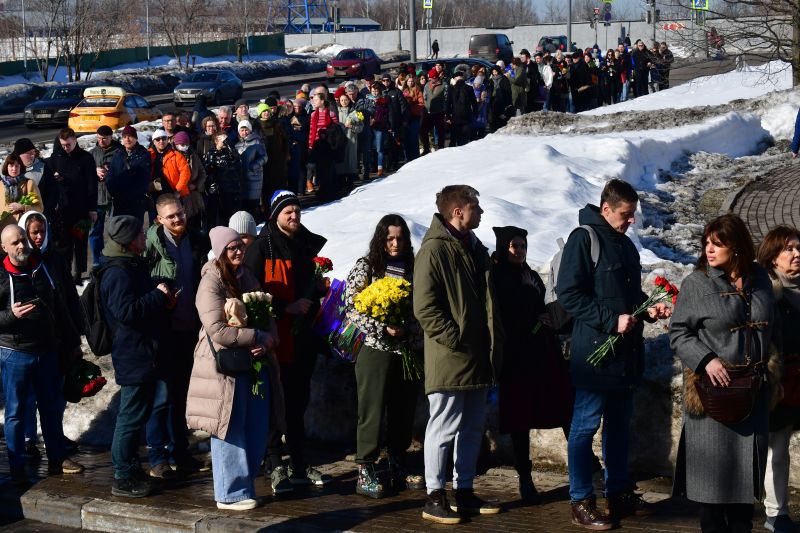In the heart of the Russian capital, Moscow, an unusual sight recently unfolded. Indicative of the strength of socio-political currents in the city, hundreds of residents formed an extensive queue to visit the grave of a prominent critic of President Vladimir Putin: Alexei Navalny. Such a remarkable sight was testament to the profound influence and impact Navalny had on Russian politics and society, and it reiterated the extent of the opposition against Putin’s administration.
Alexei Navalny, a vigorous Russia’s main opposition leader, a lawyer, and anti-corruption activist, has been an outspoken voice, persistently calling out the alleged corruption at the highest levels of the Russian government. He posed a significant challenge to Putin’s regime with his bold and fearless approach, which resonated with many citizens who felt stifled by the authoritative system.
This unprecedented queue underscored the profound effect Navalny had on the masses. The waiting crowd, a study in patient perseverance, stood undeterred and undiscouraged by the length and the slow-moving serpentine line. They came prepared, bearing the chilly weather with stoic resolves, donned in heavy coats, scarves, and hats. As they waited, they shared stories and memories of Navalny and the influence he had on their lives.
The atmosphere reflected a blend of mourning, respect, and quiet rebellion. A poignant silence prevailed, occasionally punctuated by whispers of Navalny’s feats, his criticisms of Putin, and his potential as a future leader. Stirring emotions were evident on the faces of the attendees, a mix of sorrow for the loss, admiration for his courage, and frustration at the circumstances of his death.
The queue also symbolized the enduring spirit of rebellion against what many view as an oppressive regime. In a way, it served as a subtle but firm statement of the democratic values inherent in every society’s health. It emphasized the people’s choice to remember their heroes and not forget the voices silenced by the regime.
Away from the crowded streets, the queue ended at the quiet grave of the late critic, marked with an austere but dignified simplicity. Flowers and notes adorned the site, adding more emotions to the already charged atmosphere. As people paid their respects, their quiet tributes spoke volumes about their collective sentiment towards Navalny and what he represented.
This significant public gathering in Moscow offered a glimpse into the extent of the public sentiment towards Navalny and his opposition to Putin’s regime. The reactions of the Russian government, particularly regarding popular opposition figures’ treatment, will undoubtedly influence the socio-political landscape of Russia going forward. Meanwhile, the silent queue in Moscow continues, a lasting testament to Navalny’s impact on the ordinary Russian citizen and a striking visual representation of Putin’s opposition.




